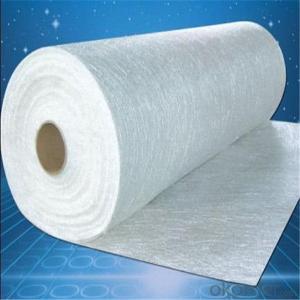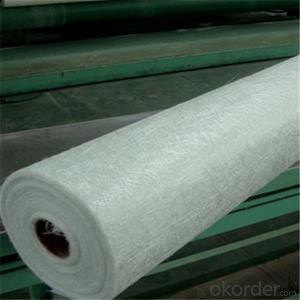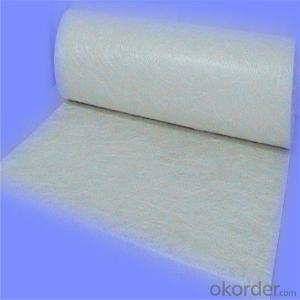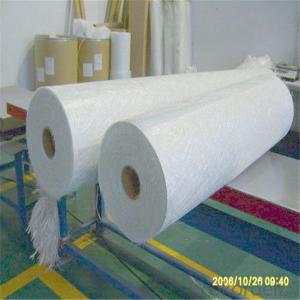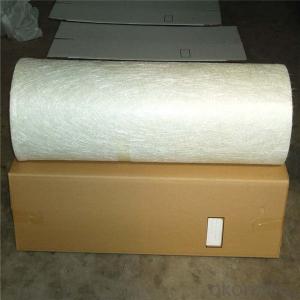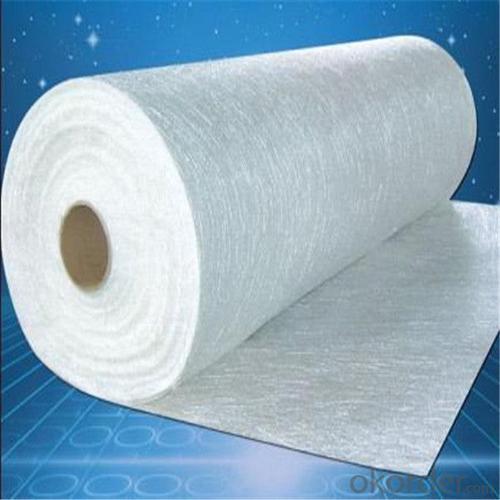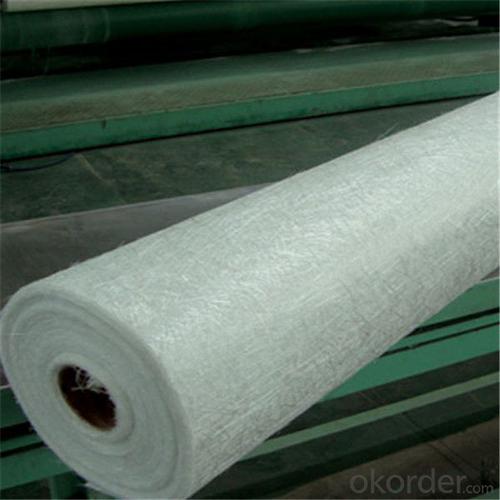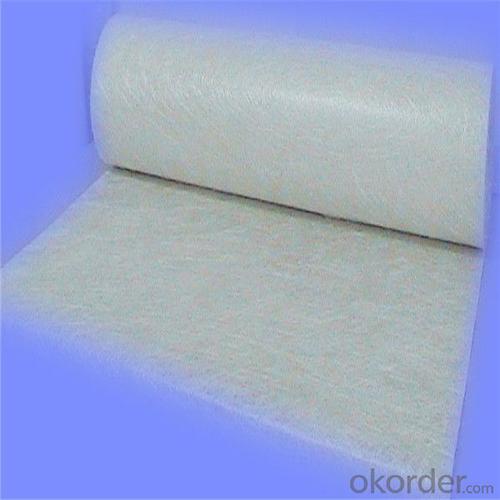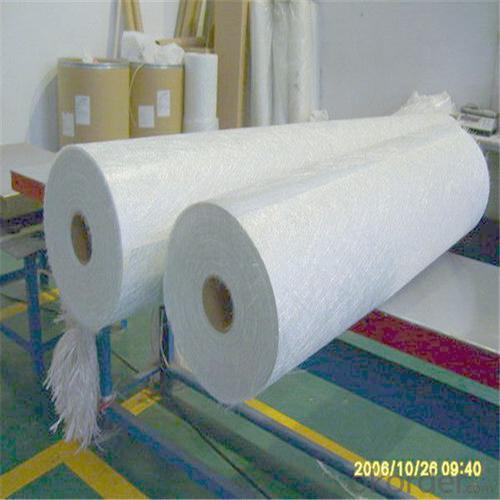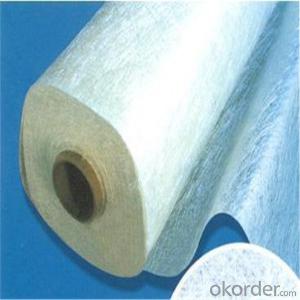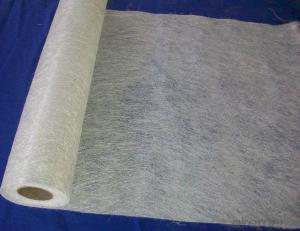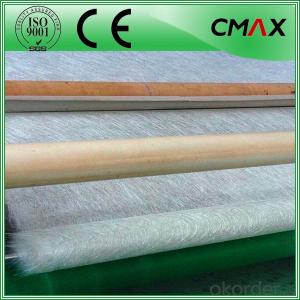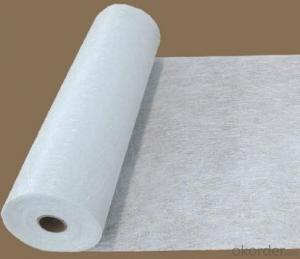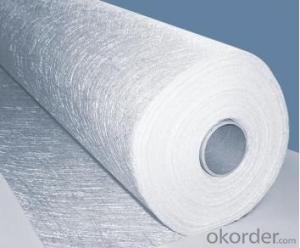Fiberglass Mat Tissue - Chopped Strand Mats 450/g
- Loading Port:
- Tianjin
- Payment Terms:
- TT OR LC
- Min Order Qty:
- 100 m.t.
- Supply Capability:
- 20000 m.t./month
OKorder Service Pledge
Quality Product, Order Online Tracking, Timely Delivery
OKorder Financial Service
Credit Rating, Credit Services, Credit Purchasing
You Might Also Like
Quick Details
| Technique: | Chopped Strand Fiberglass Mat (CSM) | Dimensions: | 450gsm | Mat Type: | Continuous Filament Mat |
| Fiberglass Type: | E-Glass | Softness: | softness | Place of Origin: | Jiangxi, China (Mainland) |
| Brand Name: | cnbm | Model Number: | 450gsm | color: | white |
| fiberglass type: | E glass | product: | e-glass powder chopped stand mats | binder: | powder or emulsion |
| width: | 1040 or 1270mm, as your requirement | weight: | 30 or 45kg/roll | paper tube diameter: | 90mm |
| outer diameter of roll: | 256mm | packing: | plastic film+carton box + pallet |
Packaging & Delivery
| Packaging Details: | plastic film+carton box + pallet |
| Delivery Detail: | 15-20days |
Specifications
1.e-glass powder chopped stand mats
2.binder:power or emulsion
3.width:1040mm or 1270mm
4.weight:450gsm
Picture
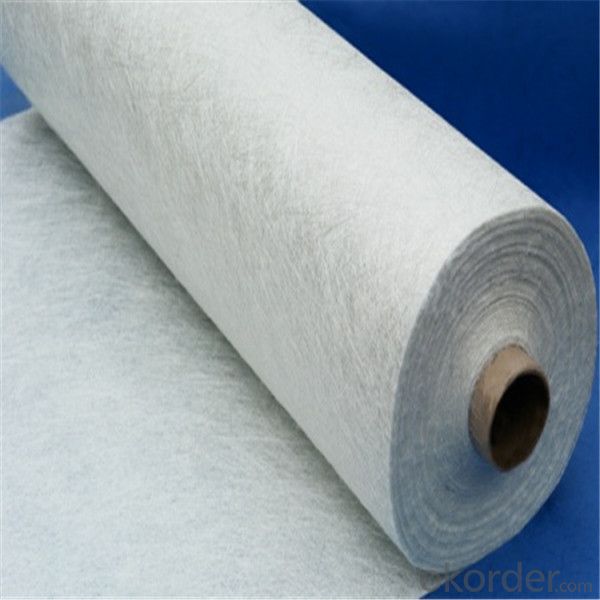
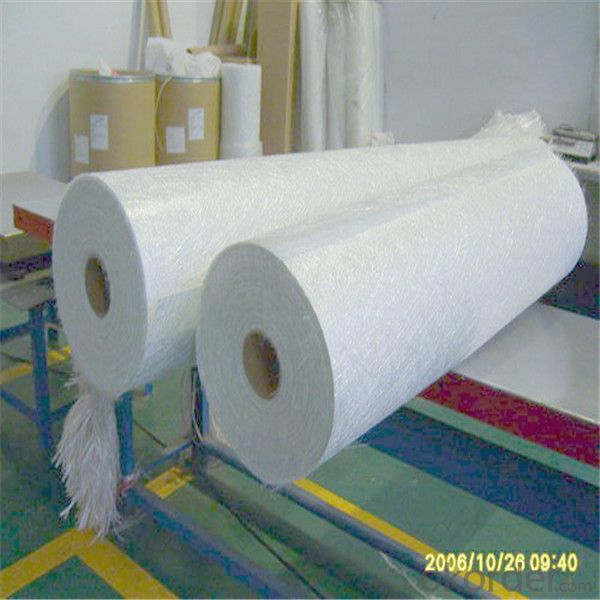
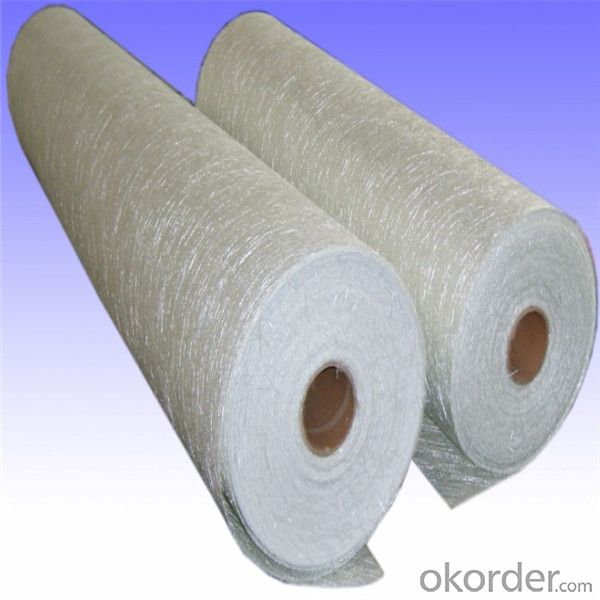
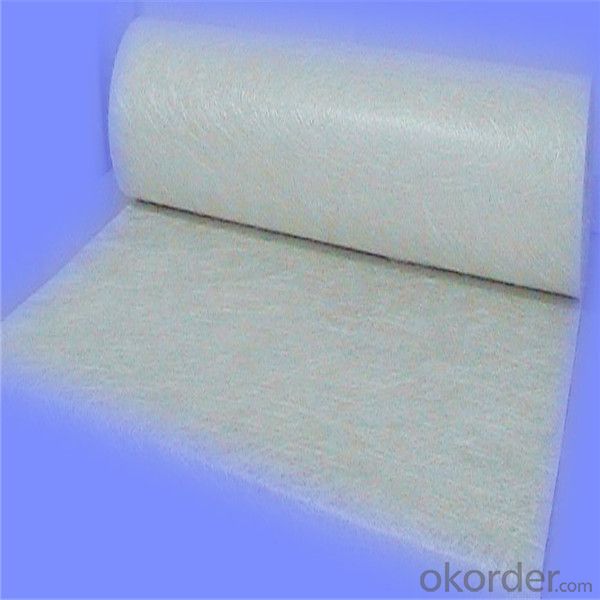
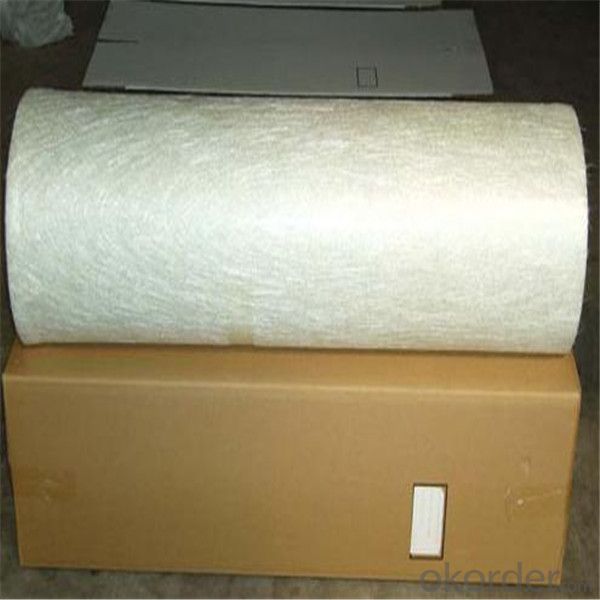
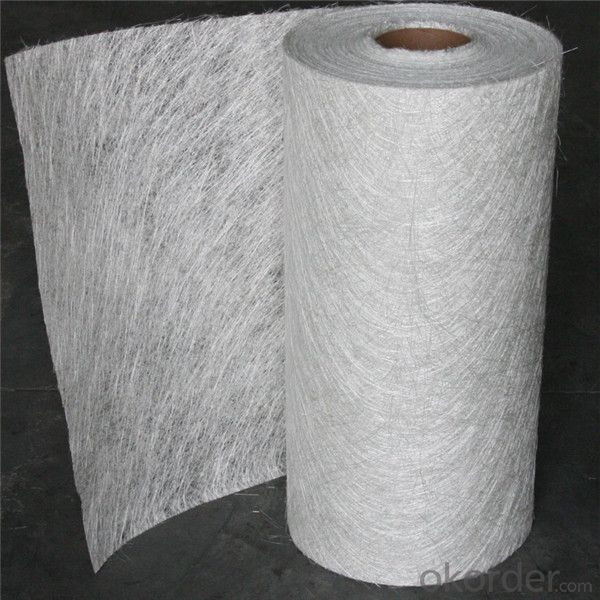
- Q: What are the different fabric finishes available for fiberglass mat tissue?
- Some of the different fabric finishes available for fiberglass mat tissue include plain weave, twill weave, satin weave, and leno weave. These finishes affect the appearance and texture of the tissue, as well as its strength and durability.
- Q: Is fiberglass mat tissue resistant to moisture?
- Fiberglass mat tissue, indeed, exhibits resistance to moisture. By tightly weaving strands of glass fibers and subsequently bonding them with a resin, this tissue fabricates a barrier that effectively thwarts the infiltration of moisture. Consequently, the moisture-resistant properties of fiberglass mat tissue render it exceptionally suitable for deployment in scenarios where water exposure or high humidity is anticipated. Moreover, this tissue's resistance to moisture aids in averting the proliferation of mold or mildew, thereby establishing it as an appropriate selection for environments prone to dampness.
- Q: Can fiberglass mat tissue be used for insulation in cold environments?
- Yes, fiberglass mat tissue can be used for insulation in cold environments. It has excellent thermal insulation properties and is commonly used in construction to provide insulation against cold temperatures.
- Q: How is fiberglass mat tissue used in the production of shower enclosures?
- The production of shower enclosures commonly utilizes fiberglass mat tissue due to its exceptional properties and advantages. This thin and flexible material consists of fine glass fibers that are randomly distributed and bonded together with a resin binder. To strengthen and enhance the shower enclosure, fiberglass mat tissue is primarily used as a reinforcement material. It is applied to the enclosure's surface to improve its strength, durability, and resistance to cracking or breaking. Initially, the fiberglass mat tissue is cut and sized according to the specific dimensions of the shower enclosure. It is then carefully placed or applied onto the enclosure's surface, typically through a process known as hand lay-up or spray-up. The mat tissue is strategically positioned to cover critical areas requiring reinforcement, such as corners, edges, and joints. Once the mat tissue is in position, a resin, usually polyester or epoxy, is applied over it. The resin penetrates the fiberglass mat tissue and bonds with the fibers, creating a solid and sturdy composite structure. This combination of resin and fiberglass provides additional strength and stability to the shower enclosure, making it more resistant to impact, stress, and water or humidity. Additionally, fiberglass mat tissue also contributes to the overall appearance of the shower enclosure. It helps achieve a smooth and uniform surface finish, eliminating imperfections and creating an aesthetically pleasing look. The mat tissue can be easily molded or shaped to match different designs and styles, enabling manufacturers to produce shower enclosures of various shapes, sizes, and patterns. In conclusion, fiberglass mat tissue plays a crucial role in the production of shower enclosures by offering reinforcement, strength, durability, and aesthetic benefits. This versatile material enhances the overall performance and visual appeal of the enclosures, ensuring they can withstand daily use and maintain their quality over time.
- Q: Can fiberglass mat tissue be used for bridge construction?
- Yes, fiberglass mat tissue can be used for bridge construction. It is often used as a reinforcement material in the construction of bridges due to its high strength, durability, and resistance to corrosion. It helps to improve the overall structural integrity and longevity of the bridge.
- Q: What are the different types of resins compatible with fiberglass mat tissue?
- There are several different types of resins that are compatible with fiberglass mat tissue. These resins include polyester resin, epoxy resin, vinyl ester resin, and polyurethane resin. Polyester resin is one of the most commonly used resins in fiberglass mat applications. It is cost-effective and has good mechanical properties, making it suitable for a wide range of applications. Polyester resin is also easy to work with and provides good resistance to water and chemicals. Epoxy resin is another popular choice for fiberglass mat tissue. It offers excellent mechanical properties, high strength, and good resistance to chemicals and moisture. Epoxy resin is often used in applications that require superior strength and durability, such as aerospace and marine industries. Vinyl ester resin is a hybrid between polyester and epoxy resins. It combines the best properties of both resins, offering high strength, good corrosion resistance, and excellent durability. Vinyl ester resin is commonly used in applications where high chemical resistance and superior mechanical properties are required. Polyurethane resin is a versatile resin that can be used with fiberglass mat tissue. It offers excellent flexibility, impact resistance, and adhesion properties. Polyurethane resin is often used in applications that require high flexibility and resistance to abrasion, such as automotive parts and sporting goods. Overall, the choice of resin depends on the specific requirements of the application, including mechanical properties, chemical resistance, flexibility, and cost.
- Q: How is fiberglass mat tissue used in the production of storage containers?
- Fiberglass mat tissue is commonly used in the production of storage containers due to its unique properties and benefits. Firstly, the fiberglass mat tissue is a thin layer of non-woven fibers made from glass, which provides excellent strength and durability. This makes it an ideal material for reinforcing the structure of storage containers, ensuring they can withstand heavy loads and resist deformation. Additionally, fiberglass mat tissue is highly resistant to corrosion, moisture, and chemicals. This makes it particularly suitable for storage containers that may be exposed to harsh environments or contain corrosive substances. The fiberglass mat tissue acts as a protective barrier, preventing any potential damage or degradation to the container. Furthermore, fiberglass mat tissue is lightweight, making it easier and more cost-effective to transport and handle during the production process. It also contributes to the overall weight reduction of the storage container, allowing for increased payload capacity and more efficient storage and transportation. In terms of production, the fiberglass mat tissue is typically applied to the surface of the storage container during the molding process. It is often impregnated with a resin or adhesive, which, when cured, forms a strong bond with the container, enhancing its structural integrity. Overall, fiberglass mat tissue plays a crucial role in the production of storage containers by providing strength, durability, corrosion resistance, and weight reduction. Its versatility and unique properties make it a preferred choice for manufacturers aiming to produce high-quality and long-lasting storage containers.
- Q: Glass fiber cotton or ceramic fiber paper insulation?
- Glass fiber has low temperature resistance, preferably not higher than 550 degrees, and ceramic fiber has good temperature resistance.
- Q: Can fiberglass mat tissue be recycled?
- Indeed, recycling is a viable option for fiberglass mat tissue. Fiberglass, composed of glass fibers and resin, allows for reusing both elements. To recycle, the glass fibers and resin are separated, typically via mechanical grinding or melting techniques. The isolated fibers are subsequently employed in the production of fresh fiberglass products like insulation, roofing materials, or even new fiberglass mat tissue. The recycling of fiberglass plays a critical role in lessening the environmental impact of this material by diverting it from landfills and conserving valuable resources. It's important to acknowledge, however, that the recycling process can be intricate and costly, which means not all recycling facilities may accept fiberglass mat tissue.
- Q: Is fiberglass mat tissue suitable for HVAC insulation?
- Yes, fiberglass mat tissue is suitable for HVAC insulation. Fiberglass mat tissue is a lightweight and flexible material that is commonly used in insulation applications due to its excellent thermal insulation properties. It provides effective heat insulation, helping to maintain a comfortable and energy-efficient environment within HVAC systems. Additionally, fiberglass mat tissue is resistant to moisture and does not promote the growth of mold or mildew, making it a suitable choice for HVAC insulation where condensation and moisture may be present. It is also easy to install and can be cut to fit around HVAC components, ensuring a proper and tight insulation seal. Overall, fiberglass mat tissue is a reliable and durable insulation material that is widely used in HVAC systems to enhance energy efficiency and thermal performance.
Send your message to us
Fiberglass Mat Tissue - Chopped Strand Mats 450/g
- Loading Port:
- Tianjin
- Payment Terms:
- TT OR LC
- Min Order Qty:
- 100 m.t.
- Supply Capability:
- 20000 m.t./month
OKorder Service Pledge
Quality Product, Order Online Tracking, Timely Delivery
OKorder Financial Service
Credit Rating, Credit Services, Credit Purchasing
Similar products
Hot products
Hot Searches
Related keywords
